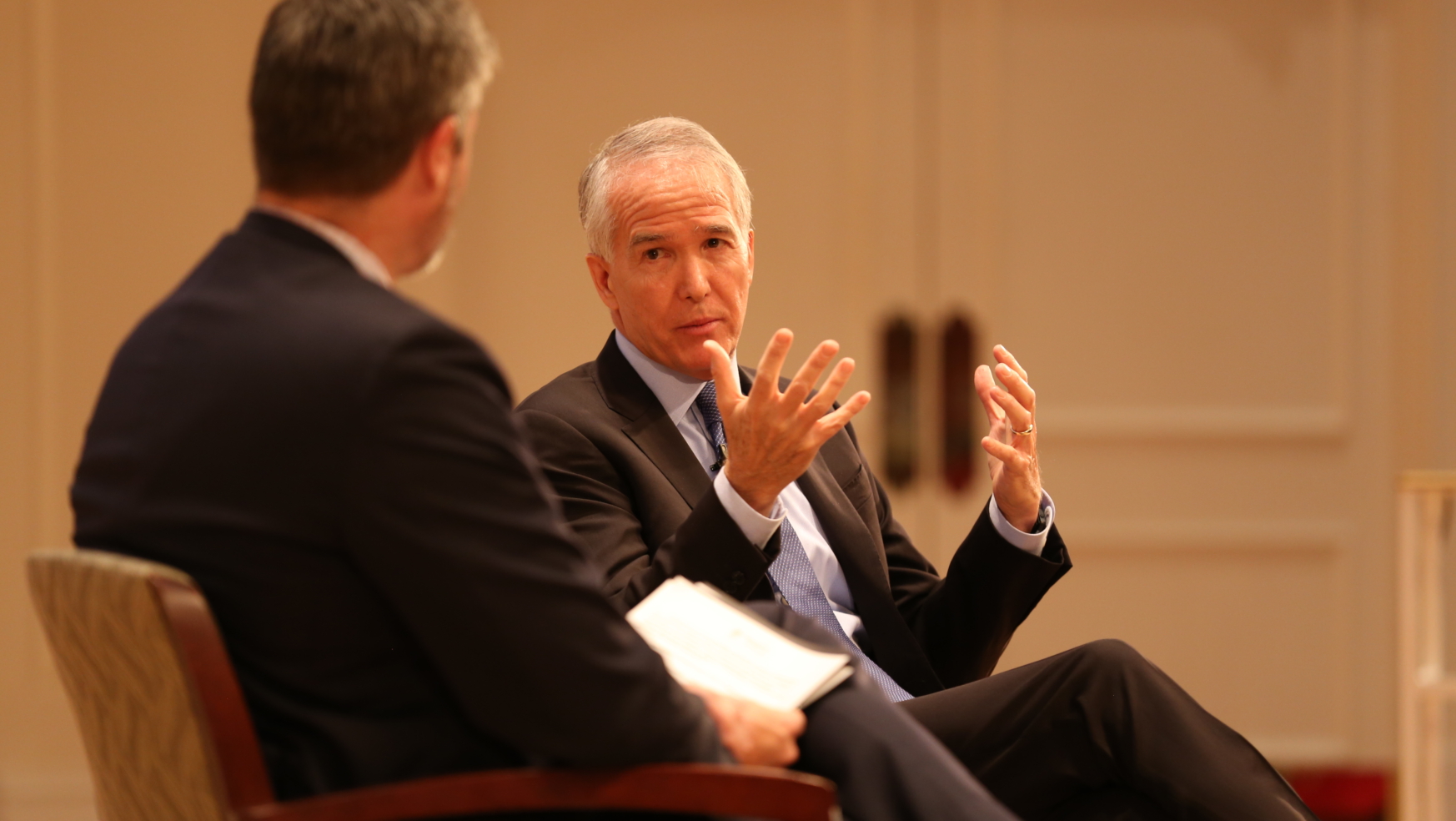
Deloitte Global Consulting CEO on the Shifting Nature of Work
By Dave Hendrick
In an era of great uncertainty for global businesses, it’s an ideal time to be in the business of solving problems, according to Jim Moffatt, Deloitte Global Consulting CEO
“It’s a great time to graduate from business school,” Moffatt told University of Virginia Darden School of Business students at a Leadership Speaker Series event. “This is the most fascinating time I’ve seen in my entire career. There’s so much change and disruption.”
Moffatt, a 30-year veteran of the professional services company, said the role of the consultant had changed dramatically during his tenure and continues to evolve. Today, almost every client comes to the consultant with a similar implied ask: How do I transform my core business and move into new and adjacent spaces?
Many companies know they are on the cusp of a significant shift, Moffatt said, as once-novel concepts like big data, machine learning and widespread automation open up new threats and opportunities. However, few seem to know exactly how to approach the future.
The changing nature of business is also changing the way Deloitte works within companies. Deloitte increasingly takes equity stakes in companies it works with or more directly ties fees to measurable value creation.
“Part of the consulting business reality is you constantly have to transform yourself,” Moffatt said. “What you’re seeing is an acceleration of that.”
Clients now demand more than “the PowerPoint” or a study with proposed solutions, as there is widespread understanding that the adoption of a proposed strategy will prove to be the most difficult task. In short, companies such as Deloitte have moved from “fee for service” to “a more embedded solution.”
The evolution in outlook comes as the Deloitte workforce has become younger — it’s now majority millennial. Moffatt said the shift in approach seems to dovetail well with a new generation of workers who are “motivated by purpose” and thrive on the opportunity to create meaningful change.
Moffatt advised Darden students to embrace the opportunity to make bold, even unconventional, career decisions, noting that many were failing to invest in the future by being too incremental or conservative in their career approach.
“You’re going to be working for a long time,” Moffatt said. “So find something you love.”
Speaking shortly after a surprising U.S. presidential election result that could have a significant impact on a multinational company like Deloitte, Moffatt lamented that some of the current frustration with global business was due to the poor job businesses had done to communicate their roles in society.
The challenge for all businesses would be to help counter that narrative in the coming years through meaningful action, Moffatt said.
“We need to be much more proactive about driving the agenda,” Moffatt said. “Putting aside the politics, we have to be deeply engaged over the next four years so that the right kind of policies get implemented.”
The University of Virginia Darden School of Business prepares responsible global leaders through unparalleled transformational learning experiences. Darden’s graduate degree programs (MBA, MSBA and Ph.D.) and Executive Education & Lifelong Learning programs offered by the Darden School Foundation set the stage for a lifetime of career advancement and impact. Darden’s top-ranked faculty, renowned for teaching excellence, inspires and shapes modern business leadership worldwide through research, thought leadership and business publishing. Darden has Grounds in Charlottesville, Virginia, and the Washington, D.C., area and a global community that includes 18,000 alumni in 90 countries. Darden was established in 1955 at the University of Virginia, a top public university founded by Thomas Jefferson in 1819 in Charlottesville, Virginia.
Press Contact
Molly Mitchell
Senior Associate Director, Editorial and Media Relations
Darden School of Business
University of Virginia
MitchellM@darden.virginia.edu




